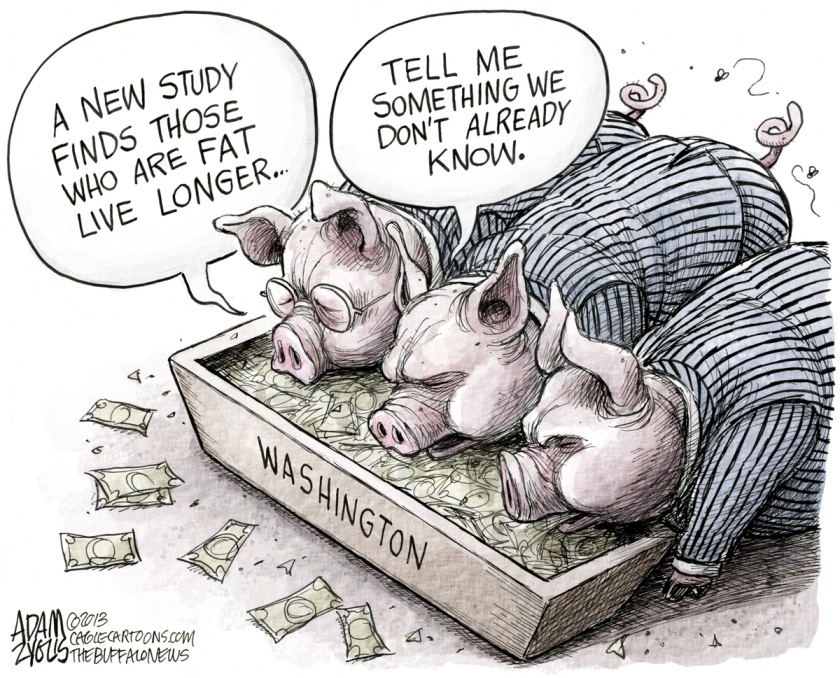
“the poor you have with you always…”
–John 12:8
Fifty-four years ago, President Lyndon Johnson declared “unconditional war” on poverty.
“The War on Poverty is not a struggle simply to support people,” declared President Lyndon B. Johnson in 1964. “It is an effort to allow them to develop and use their capacities.” During the 20 years before the War on Poverty was funded, the portion of the nation living in poverty had dropped to 14.7% from 32.1%. Since 1966, the first year with a significant increase in antipoverty spending, the poverty rate reported by the Census Bureau has been virtually unchanged.
40 million Americans live in “squalor and deprivation. Welfare and the criminal justice system is effectively a system for keeping the poor in poverty according to “Progressive” think-tanks.
The Census Bureau counts as poor all people in families with incomes lower than the established income thresholds for their respective family size and composition.
The thresholds, first set in 1963, are based on a multiple of the cost of a budget for adequately nutritious food, adjusted for inflation.
While the Census Bureau reports that in 2016 some 12.7% of Americans lived in poverty, it is impossible to reconcile this poverty rate, which has remained virtually unchanged over the last 50 years, with the fact that total inflation-adjusted government-transfer payments to low-income families have risen steadily.
Transfers targeted to low-income families increased in real dollars from an average of $3,070 per person in 1965 to $34,093 in 2016.
The measured poverty rate has remained virtually unchanged only because the Census Bureau doesn’t count most of the transfer payments created since the declaration of the War on Poverty.
The bureau measures poverty using what it calls “money income,” which includes earned income and some transfer payments such as Social Security and unemployment insurance. But it excludes food stamps, Medicaid, the portion of Medicare going to low-income families, Children’s Health Insurance, the refundable portion of the earned-income tax credit, at least 87 other means-tested federal payments to individuals, and most means-tested state payments.
If government counted these missing $1.5 trillion in annual transfer payments, the poverty rate would be less than 3%.
The stated goal of the War on Poverty was not just to raise living standards, but also to make America’s poor more self-sufficient and to bring them into the mainstream of the economy.
In that effort the war has been an abject failure, increasing dependency and largely severing the bottom fifth of earners from the rewards and responsibilities of work.
The War on Poverty has increased dependency and failed in its primary effort to bring poor people into the mainstream of America’s economy and communal life.
There are three other factors:
1. A severe decline in the number of jobs that can be done by an unskilled or uneducated person, along with technologies that make it increasingly difficult for people on the margins to even apply for them.
2. The much greater gap between how far one income goes in terms of spending power and what it costs to actually live.
3. Badly handled programs that instead of encouraging part-time work and self-employment (the way most people who actually get out of poverty manage to do it) punish it; both by harsh regulations that discourage any sort of part-time work for fear of losing what benefits a person/family has and/or insane amounts of regulations and fees to set up any sort of small business or be “certified” for traditional jobs like hairdresser, home sewer, cookie baking or even taxi driver.
The idea of “Universal Basic Income” was supposed to “solve” this last problem but so far hasn’t worked very well (the idea is there are no penalties for making more money).
Government programs replaced deprivation with idleness, stifling human flourishing. It happened just as President Franklin Roosevelt said it would: “The lessons of history,” he said in 1935, “show conclusively that continued dependency upon relief induces a spiritual and moral disintegration fundamentally destructive to the national fiber.”
There is an economic truism; “You can’t get rid of something by subsidizing it.”
After fifty-four years of intense combat and the expenditure of almost uncountable wealth it would be accurate to say, the war is over. Poverty won.
“A Republic, if you can keep it” “A Wake of Vultures”
Available soon

Follow me on Twitter @OzarksAuthor
This page and its links contain opinion. As with all opinion, it should not be relied upon without independent verification. Think for yourself. Fair Use is relied upon for all content. For educational purposes only. No claims are made to the properties of third parties.
(c) 2018 Uriel Press

